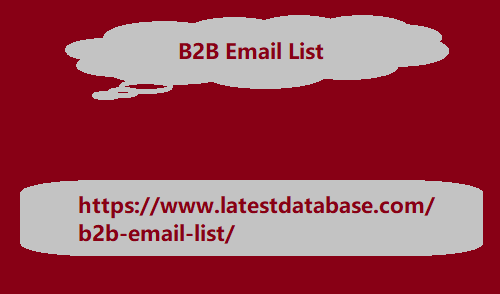Post by account_disabled on Jan 22, 2024 4:38:11 GMT -5
The Python programming language is one of the most popular and in demand. It is free, has a large community, is intended for developing projects of varying complexity, is easy to learn and opens up great opportunities for programmers. To work comfortably with it, you need Python Web Frameworks - development environments with which you can implement the code. We have selected Python frameworks that will be relevant in 2021. Popular Python Frameworks 2021 Python frameworks make life much easier for any developer and provide ample opportunities for creating effective applications or websites. Many decisions can be easily automated, processes can be accelerated, and routine tasks can be reduced to a minimum. Why Python frameworks and why are there so many of them if they perform the same functions?
In fact, their functionality differs significantly. Some are made for full-fledged complex multi-level development, while others have a simplified interface that allows you to de B2B Email List velop individual modules and blocks. Before choosing which environment to work in, you need to define the tasks and understand the goals. In this case, it will become clear what exactly to use. django Django Django is a full-stack framework with free open source. He is one of the most important and popular among Python developers. It helps you move from a prototype to a ready-made working solution in a short time, since its main task is to automate processes and speed up work through associations and libraries. Most solutions have a boxed form, that is, they only need to be applied, and not “invent the wheel.”

Popular request among clients And the right way, because Python is a great solution for those who want to monetize their customer data and predict growth with 85% accuracy. It sounds nice, but it's not for everyone. pros Django has quite a lot of benefits. It contains a large number of ready-made solutions, which greatly simplifies development. Administrator panel, database migration, various forms, user authentication tools - all this is ready-made. The structure is very clear and simple. A large community helps solve almost any problem. High degree of security, convenient architecture, comfortable work with databases thanks to ORM. Minuses Despite its powerful capabilities, Django's Python Web Framework also has its drawbacks. It is very massive, monolithic, so it develops slowly. Despite the many universal modules, the development speed of Django itself is slow.
In fact, their functionality differs significantly. Some are made for full-fledged complex multi-level development, while others have a simplified interface that allows you to de B2B Email List velop individual modules and blocks. Before choosing which environment to work in, you need to define the tasks and understand the goals. In this case, it will become clear what exactly to use. django Django Django is a full-stack framework with free open source. He is one of the most important and popular among Python developers. It helps you move from a prototype to a ready-made working solution in a short time, since its main task is to automate processes and speed up work through associations and libraries. Most solutions have a boxed form, that is, they only need to be applied, and not “invent the wheel.”

Popular request among clients And the right way, because Python is a great solution for those who want to monetize their customer data and predict growth with 85% accuracy. It sounds nice, but it's not for everyone. pros Django has quite a lot of benefits. It contains a large number of ready-made solutions, which greatly simplifies development. Administrator panel, database migration, various forms, user authentication tools - all this is ready-made. The structure is very clear and simple. A large community helps solve almost any problem. High degree of security, convenient architecture, comfortable work with databases thanks to ORM. Minuses Despite its powerful capabilities, Django's Python Web Framework also has its drawbacks. It is very massive, monolithic, so it develops slowly. Despite the many universal modules, the development speed of Django itself is slow.
